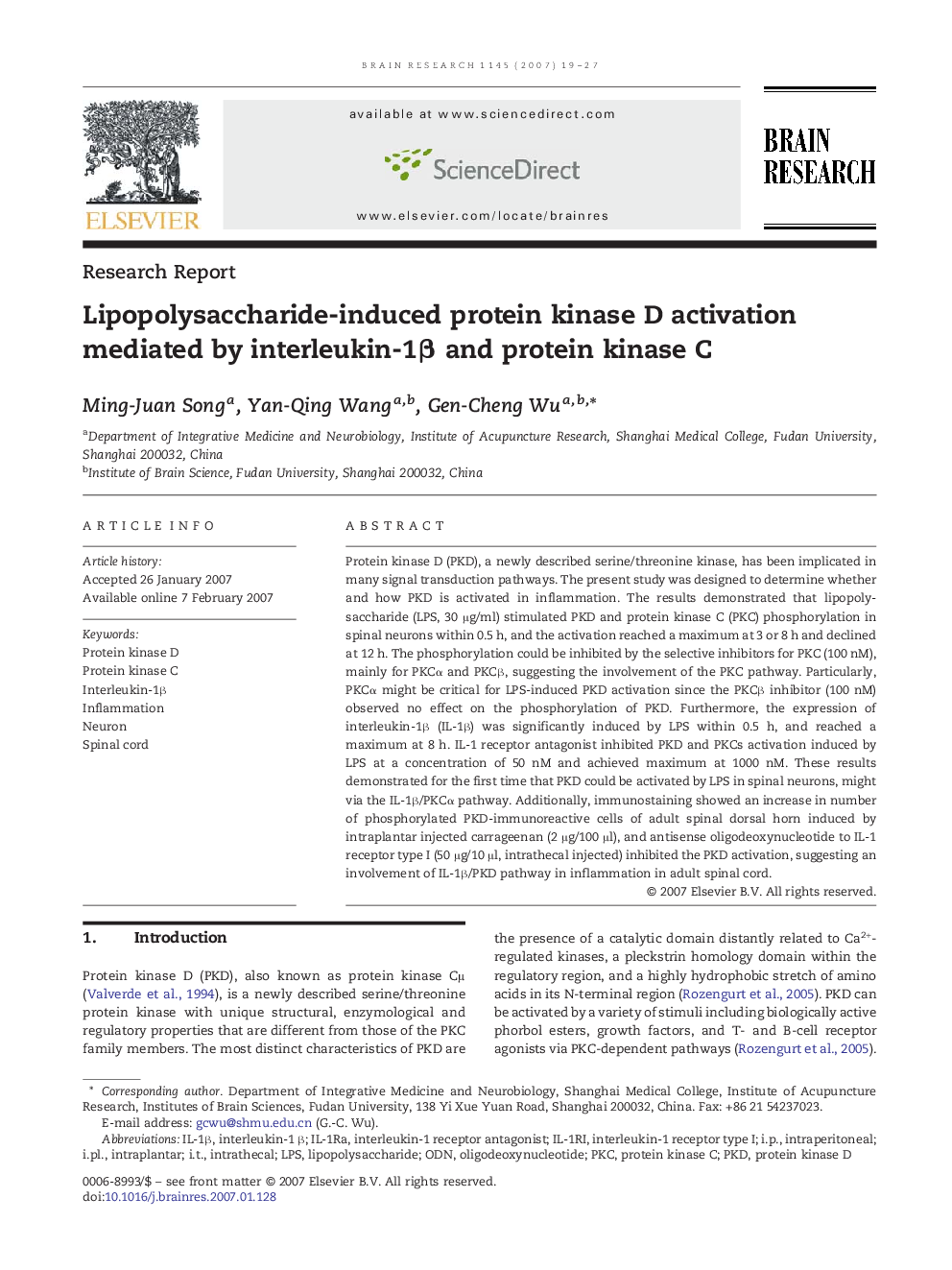| Article ID | Journal | Published Year | Pages | File Type |
|---|---|---|---|---|
| 4331354 | Brain Research | 2007 | 9 Pages |
Protein kinase D (PKD), a newly described serine/threonine kinase, has been implicated in many signal transduction pathways. The present study was designed to determine whether and how PKD is activated in inflammation. The results demonstrated that lipopolysaccharide (LPS, 30 μg/ml) stimulated PKD and protein kinase C (PKC) phosphorylation in spinal neurons within 0.5 h, and the activation reached a maximum at 3 or 8 h and declined at 12 h. The phosphorylation could be inhibited by the selective inhibitors for PKC (100 nM), mainly for PKCα and PKCβ, suggesting the involvement of the PKC pathway. Particularly, PKCα might be critical for LPS-induced PKD activation since the PKCβ inhibitor (100 nM) observed no effect on the phosphorylation of PKD. Furthermore, the expression of interleukin-1β (IL-1β) was significantly induced by LPS within 0.5 h, and reached a maximum at 8 h. IL-1 receptor antagonist inhibited PKD and PKCs activation induced by LPS at a concentration of 50 nM and achieved maximum at 1000 nM. These results demonstrated for the first time that PKD could be activated by LPS in spinal neurons, might via the IL-1β/PKCα pathway. Additionally, immunostaining showed an increase in number of phosphorylated PKD-immunoreactive cells of adult spinal dorsal horn induced by intraplantar injected carrageenan (2 μg/100 μl), and antisense oligodeoxynucleotide to IL-1 receptor type I (50 μg/10 μl, intrathecal injected) inhibited the PKD activation, suggesting an involvement of IL-1β/PKD pathway in inflammation in adult spinal cord.
